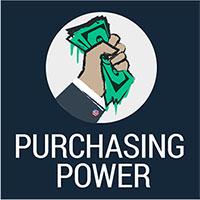Last month President Trump’s interim director of the Consumer Financial Protection Bureau announced a philosophy of government that most public officials would deny: money buys influence, and that’s as it should be.
Mick Mulvaney told a group of 1,300 banking executives how he had operated while representing South Carolina in Congress until last year. “If you’re a lobbyist who never gave us money, I didn’t talk to you. If you’re a lobbyist who gave us money, I might talk to you,” he said. He urged the bankers to use their influence to get lawmakers to gut the agency — which he has worked from within to derail — as such influence-peddling is one of the “fundamental underpinnings of our representative democracy. And you have to continue to do it.”
His comment was only the starkest reminder of how rapidly the Trump White House has staffed regulatory agencies with leaders who are close to corporate interests with big stakes in government (in)action that may not serve the best interests of most Americans. Take the energy adviser on the National Economic Council, a career lobbyist for the biggest players in fossil fuel. Or the Secretary of Education, a donor with major investments in private education and no experience in public education policy.
Mulvaney’s example is also a crucial reminder to those of us who study money in politics: we need to better understand and measure “influence.” How much influence can the payday lending lobby buy, and is that more influence than a citizen of average income (let alone a payday loan borrower) enjoys? To what extent do wealthy interests exploit avenues of influence that are inaccessible to most and hidden from accountability?
Congress created the CFPB in 2011 to protect Americans from the kinds of predatory lending abuses that plunged homeowners and retirees into poverty and nearly tanked the U.S. economy in 2008. Numerous reports have documented how payday loan companies hoodwinked and trapped the most vulnerable in endless debt cycles.
Upon taking the helm last November, Mulvaney promptly ended a case brought by the agency’s former director against a group of payday lenders in Kansas accused of charging interest rates of nearly 1,000% for short-term loans. He also directed the Bureau to drop an investigation into a South Carolina payday lender that had donated $4,500 to his congressional campaigns through the corporation’s political action committee.
Mulvaney had received over $63,000 in campaign contributions from those in the payday lending industry when running for Congress. In response to accusations of corruption and pay-to-play deals, Dennis Shaul, CEO of a large lobbying group for payday lenders said, “$65,000 over five or six years for Mulvaney?…That’s not a hell of a lot of influence on an annual basis.”
That’s part of the problem. What sounds like pocket change to Shaul is more than most Americans could comfortably spend on political influence in a lifetime. Consider those who fall into these debt traps because they can’t afford to make the next payment on their bills. In Missouri, borrowing $2,500 can put you on the hook for $50,000 in interest and late fees on the very predatory loans the CFPB is designed to regulate. That’s almost twice in interest than what the average person makes in a year in the state. So, $65,000 is a whole lot compared to the $0 impoverished debtors are able to donate.
And a lot less than $65,000 has been sufficient to convict public officials for corruption. Former New York State Assemblyman Eric Stevenson took $20,000 in bribes, including a campaign contribution of “just” $2,000 to his political action committee, in exchange for legislative action that favored businessmen seeking to operate adult daycare centers in the Bronx. Stevenson was sentenced to three years in prison.
Speaking of corruption problems, we know from lender lobbyist Shaul that the industry gave “only” $65,000 to Mulvaney… in disclosed, hard money contributions. But we also know that the payday loan industry has funneled much more than that to aid politicians secretly, through webs of dark money nonprofits.
A state legislative inquiry found that former Utah Attorney General John Swallow’s 2012 campaign had used a network of generically-named nonprofits to arrange close to half a million dollars in political support for his promise to go easy on payday lenders once elected. Although Swallow—a lobbyist for a payday loan company prior to taking office—was charged and ultimately acquitted on a different set of corruption allegations, the legislature’s probe uncovered the troubling influence scheme. To hide the role of deeply unpopular payday lenders, Swallow’s aides arranged for them to donate to a nondescript 501(c)(4) social welfare nonprofit, that would then donate to a nondescript PAC, that would then disclose donations as coming from the social welfare nonprofit and give voters the appearance of transparency. Without the legislative inquiry, the public would never have known the true origins of huge sums that helped elect Swallow to a powerful public office.
Shaul and Mulvaney’s blasé statements about money and political influence underscore the need for all empiricists who care about protecting democracy to dig deeper into how those connections translate into broader political disenfranchisement.
Iris Zhang is a Research and Program Associate in the Brennan Center’s Democracy Program, and will be joining Stanford University’s sociology PhD program later this year.
 |
Purchasing Power: The ConversationThis post is part of the special series designed to provide well-informed commentary, fresh questions, and new answers about the facts of money in politics. Dive in to 'Purchasing Power: The Conversation’ here. The views expressed by blog contributors are the authors’ own and not necessarily the views of the Brennan Center.
|